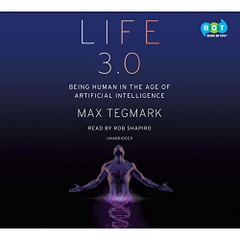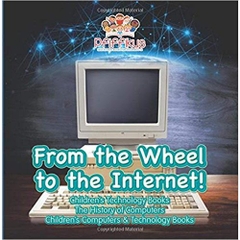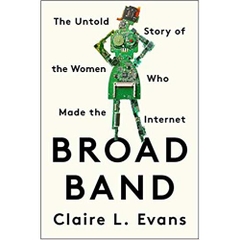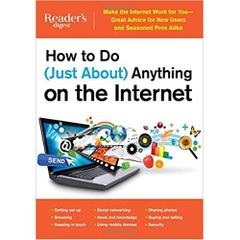-
-
-
Tổng tiền thanh toán:
-
-
Thông tin
-
Tìm sách theo yêu cầu
The rousing story of the last gasp of human agency and how todays best and brightest minds are endeavoring to put an end to it.
It used to be that to diagnose an illness, interpret legal documents, analyze foreign policy, or write a newspaper article you needed a human being with specific skillsand maybe an advanced degree or two. These days, high-level tasks are increasingly being handled by algorithms that can do precise work not only with speed but also with nuance. These bots started with human programming and logic, but now their reach extends beyond what their creators ever expected.
In this fascinating, frightening book, Christopher Steiner tells the story of how algorithms took overand shows why the bot revolution is about to spill into every aspect of our lives, often silently, without our knowledge.
The May 2010 Flash Crash exposed Wall Streets reliance on trading bots to the tune of a 998-point market drop and $1 trillion in vanished market value. But that was just the beginning. In Automate This, we meet bots that are driving cars, penning haiku, and writing music mistaken for Bachs. They listen in on our customer service calls and figure out what Iran would do in the event of a nuclear standoff. There are algorithms that can pick out the most cohesive crew of astronauts for a space mission or identify the next Jeremy Lin. Some can even ingest statistics from baseball games and spit out pitch-perfect sports journalism indistinguishable from that produced by humans.
The interaction of man and machine can make our lives easier. But what will the world look like when algorithms control our hospitals, our roads, our culture, and our national security? What happens to businesses when we automate judgment and eliminate human instinct? And what role will be left for doctors, lawyers, writers, truck drivers, and many others?
- Link: http://www.amazon.com/Automate-This-Algorithms-Came-World/dp/1591844924
It used to be that to diagnose an illness, interpret legal documents, analyze foreign policy, or write a newspaper article you needed a human being with specific skillsand maybe an advanced degree or two. These days, high-level tasks are increasingly being handled by algorithms that can do precise work not only with speed but also with nuance. These bots started with human programming and logic, but now their reach extends beyond what their creators ever expected.
In this fascinating, frightening book, Christopher Steiner tells the story of how algorithms took overand shows why the bot revolution is about to spill into every aspect of our lives, often silently, without our knowledge.
The May 2010 Flash Crash exposed Wall Streets reliance on trading bots to the tune of a 998-point market drop and $1 trillion in vanished market value. But that was just the beginning. In Automate This, we meet bots that are driving cars, penning haiku, and writing music mistaken for Bachs. They listen in on our customer service calls and figure out what Iran would do in the event of a nuclear standoff. There are algorithms that can pick out the most cohesive crew of astronauts for a space mission or identify the next Jeremy Lin. Some can even ingest statistics from baseball games and spit out pitch-perfect sports journalism indistinguishable from that produced by humans.
The interaction of man and machine can make our lives easier. But what will the world look like when algorithms control our hospitals, our roads, our culture, and our national security? What happens to businesses when we automate judgment and eliminate human instinct? And what role will be left for doctors, lawyers, writers, truck drivers, and many others?
Product Details
Hardcover: 256 pages
- Publisher: Portfolio (August 30, 2012)
- Language: English
- ISBN-10: 1591844924
- ISBN-13: 978-1591844921
- Product Dimensions: 9.1 x 6.2 x 1.2 inches
- Shipping Weight: 15.2 ounces (View shipping rates and policies)
- Average Customer Review: 4.2 out of 5 stars See all reviews (95 customer reviews)
- Amazon Best Sellers Rank: #332,316 in Books (See Top 100 in Books)
Editorial Reviews
From Booklist
The Arab Spring of 2011 did not surprise analyst Bueno de Mesquita, who in May 2010 predicted that Egyptian strongman Hosni Mubarak would fall within a year—basing his prediction on the workings of an algorithm. As readers follow Steiner in his whirlwind tour of algorithm applications, they will marvel at the versatility of a mathematical tool understood only by a small circle of experts. Readers peer over the experts’ shoulders long enough to trace the decision-tree logic of an individual algorithm and to follow the cascading dynamics of the linked algorithms that drive the “bots” now handling everything from putting astronauts into space to matching compatible personalities venturing into the dating scene. Steiner acknowledges that a world reliant on bots must cope with new challenges—flash crashes on Wall Street, unemployment among accountants, dangerously powerful technocrats. Still, Steiner remains hopeful that resourceful computer whizzes will weave algorithms that will enrich and safeguard our future. An accessible foray into computer programming that has become a hidden but pervasive presence. --Bryce Christensen
Review
“[Steiner] excels in bringing a dry subject to life.”
—Financial Times
—Financial Times
"As readers follow Steiner in his whirlwind tour of algorithm applications, they will marvel at the versatility of a mathematical tool understood only by a small circle of experts. Readers peer over the experts’ shoulders long enough to trace the decision-tree logic of an individual algorithm and to follow the cascading dynamics of the linked algorithms that drive the “bots” now handling everything from putting astronauts into space to matching compatible personalities venturing into the dating scene…. An accessible foray into computer programming that has become a hidden but pervasive presence."
—Bryce Christensen, Booklist
“Algorithms are affecting every field of human endeavor, from markets to medicine, poker to pop music. Read this book if you want to understand the most powerful force shaping the world today and tomorrow.”
—Andrew McAfee, principal research scientist, MIT; coauthor of Race Against the Machine
“Algorithms are affecting every field of human endeavor, from markets to medicine, poker to pop music. Read this book if you want to understand the most powerful force shaping the world today and tomorrow.”
—Andrew McAfee, principal research scientist, MIT; coauthor of Race Against the Machine
“Christopher Steiner knows how to find terrific stories and tell them well. He has written a lively narrative with humans at its center. To be sure, its subject is important, but the book is also fun.”
—Randall Stross, author of Planet Google and The Launch Pad
—Randall Stross, author of Planet Google and The Launch Pad
Most Helpful Customer Reviews
109 of 124 people found the following review helpfulBy Sreeram Ramakrishnan VINE VOICE on October 1, 2012
Format: Hardcover
4 Comments Was this review helpful to you? YesNoFor a book that is heavily publicized and garnered reviews in major business magazines, this book flatters only to deceive. Unless you are a total novice in this space, a reader is unlikely to find any new examples or insights from the author's treatment of algorithms. Most examples have been discussed ( in terms of technical content and impact on business models, society, behaviors) in magazines like Wired, PopSci and NYT technology pages many years ago. The dated references to recommendation engines like dating websites, those focused on music (Pandora, etc) are all superficial and provide no new insights or a critical appraisal of where those technologies are headed.
The author also overly focuses on Wall Street based scenarios to explain algorithms - he does a particularly bad job in representing algorithms as nothing more than fast calculators - that too, with a fundamentally flawed example based on option trading (I sincerely hope that the author never tried the trade he has mentioned in the book). That misguided example reflects poorly on author's understanding of algorithms and inadvertently proves one thing - algorithms are only as good as the thought that went behind its design.
Despite the superficial treatment, the author makes a few important points in the last two chapters on the need for more skill development in "STEM" disciplines and makes an argument that medical diagnostics is the next main area where algorithms are poised to expand. The discussion is very rushed and provides no meaningful action plan. Moreover, the author fails to acknowledge the vast amount of data that an individual is generating on a daily basis - and concepts of "big data" that could shape how new avenues for algorithms can evolve. Even in healthcare, the author's focus on a tiny sliver of possibilities shows a certain laziness to explore the topic more critically. The role of algorithms in personalizing treatment plans, monitoring for adherence, risk stratification etc are all well-understood frontiers in healthcare - and he chose to ignore them completely.
Overall, a very superficial (but fast paced, entertaining read) treatment of a narrow view of 'machine learning' with very few new insights or examples. An OK read for a beginner to the field.
The author also overly focuses on Wall Street based scenarios to explain algorithms - he does a particularly bad job in representing algorithms as nothing more than fast calculators - that too, with a fundamentally flawed example based on option trading (I sincerely hope that the author never tried the trade he has mentioned in the book). That misguided example reflects poorly on author's understanding of algorithms and inadvertently proves one thing - algorithms are only as good as the thought that went behind its design.
Despite the superficial treatment, the author makes a few important points in the last two chapters on the need for more skill development in "STEM" disciplines and makes an argument that medical diagnostics is the next main area where algorithms are poised to expand. The discussion is very rushed and provides no meaningful action plan. Moreover, the author fails to acknowledge the vast amount of data that an individual is generating on a daily basis - and concepts of "big data" that could shape how new avenues for algorithms can evolve. Even in healthcare, the author's focus on a tiny sliver of possibilities shows a certain laziness to explore the topic more critically. The role of algorithms in personalizing treatment plans, monitoring for adherence, risk stratification etc are all well-understood frontiers in healthcare - and he chose to ignore them completely.
Overall, a very superficial (but fast paced, entertaining read) treatment of a narrow view of 'machine learning' with very few new insights or examples. An OK read for a beginner to the field.
62 of 72 people found the following review helpfulBy Nathan Wailes on September 2, 2012
Format: Hardcover Verified Purchase
Length: ~220pp
Contents:
Introduction
1. Wall Street, The First Domino - this chapter tells the story of Thomas Peterffy, who was apparently the major innovator in the last 40 years in algorithmic trading. The guy is now a billionaire. It's a VERY interesting story.
2. A Brief History of Man and Algorithms - This spends a lot of time discussing mathematicians of the past, and how their innovations led to
3. The Bot Top 40 - Talks about how algorithms can be used to detect which songs are likely to be hits. Some great stories.
4. The Secret Highways of Bots - The main idea of this chapter is that the SPEED of algorithms is what makes them so valuable. The majority of the chapter is spent telling the story of how two guys spent $200 million building a new communications line between Chicago and NYC so that they could shave 4 milliseconds off the amount of time it took to communicate between the two cities, which gave a HUGE advantage in algorithmic trading. The plan worked and the guys made a ton of money off it.
5. Gaming the System - Algorithms in gaming (poker, etc.)
6. Paging Dr. Bot - Gives examples of companies that are using computers to replace a LOT of the work now done by doctors.
7. Categorizing Humankind - Tells the story of how NASA used algorithms to detect which astronauts would work well together during the 1960s/70s missions, and how this same idea is now being used to create algorithms that can detect your personality over the phone and connect you with a customer service representative whose method of communication matches yours. Very interesting.
8. Wall Street Versus Silicon Valley - Talks about how Silicon Valley and Wall St. compete for talent
9. Wall Street's Loss is a Gain for the Rest of Us
10. The Future Belongs to the Algorithms and Their Creators
How I found out about the book: I preordered the book after I read the author's August 2012 piece in the Wall Street Journal (which was just an excerpt from the book).
What I like about it:
- It is written very clearly, and you can finish the book quickly. The author used to write for Forbes, and it definitely felt like I was reading a magazine article while I was reading the book.
- The book isn't very expensive, and so it seems worth the price to have an extended glimpse into this topic. I don't subscribe to magazines and newspapers at the moment because too many of the articles aren't of interest to me, and it takes time to dig through all the stuff I'm not interested in and find stuff I AM interested in. A book like this solves that problem.
Other books to check out if you like this one:
- The Autobiography of Henry Ford - Ford spends most of the book talking about his method of innovation in manufacturing the Model T, which is exactly the same kind of innovation we're seeing now with the use of computers.
- The Singularity Is Near by Ray Kurzweil - talks about how computers are becoming smarter and smarter, to the point where we'll all be biologically immortal
- A Field Guide to Genetic Programming - this is a great intro to a type of computing that is producing better-than-human results by "evolving" programs instead of having people make them by hand.
Contents:
Introduction
1. Wall Street, The First Domino - this chapter tells the story of Thomas Peterffy, who was apparently the major innovator in the last 40 years in algorithmic trading. The guy is now a billionaire. It's a VERY interesting story.
2. A Brief History of Man and Algorithms - This spends a lot of time discussing mathematicians of the past, and how their innovations led to
3. The Bot Top 40 - Talks about how algorithms can be used to detect which songs are likely to be hits. Some great stories.
4. The Secret Highways of Bots - The main idea of this chapter is that the SPEED of algorithms is what makes them so valuable. The majority of the chapter is spent telling the story of how two guys spent $200 million building a new communications line between Chicago and NYC so that they could shave 4 milliseconds off the amount of time it took to communicate between the two cities, which gave a HUGE advantage in algorithmic trading. The plan worked and the guys made a ton of money off it.
5. Gaming the System - Algorithms in gaming (poker, etc.)
6. Paging Dr. Bot - Gives examples of companies that are using computers to replace a LOT of the work now done by doctors.
7. Categorizing Humankind - Tells the story of how NASA used algorithms to detect which astronauts would work well together during the 1960s/70s missions, and how this same idea is now being used to create algorithms that can detect your personality over the phone and connect you with a customer service representative whose method of communication matches yours. Very interesting.
8. Wall Street Versus Silicon Valley - Talks about how Silicon Valley and Wall St. compete for talent
9. Wall Street's Loss is a Gain for the Rest of Us
10. The Future Belongs to the Algorithms and Their Creators
How I found out about the book: I preordered the book after I read the author's August 2012 piece in the Wall Street Journal (which was just an excerpt from the book).
What I like about it:
- It is written very clearly, and you can finish the book quickly. The author used to write for Forbes, and it definitely felt like I was reading a magazine article while I was reading the book.
- The book isn't very expensive, and so it seems worth the price to have an extended glimpse into this topic. I don't subscribe to magazines and newspapers at the moment because too many of the articles aren't of interest to me, and it takes time to dig through all the stuff I'm not interested in and find stuff I AM interested in. A book like this solves that problem.
Other books to check out if you like this one:
- The Autobiography of Henry Ford - Ford spends most of the book talking about his method of innovation in manufacturing the Model T, which is exactly the same kind of innovation we're seeing now with the use of computers.
- The Singularity Is Near by Ray Kurzweil - talks about how computers are becoming smarter and smarter, to the point where we'll all be biologically immortal
- A Field Guide to Genetic Programming - this is a great intro to a type of computing that is producing better-than-human results by "evolving" programs instead of having people make them by hand.
XEM CHI TIẾT TẠI AMAZON.COM
- Thông tin chi tiết
- Mục lục
- Đánh giá & bình luận của người mua
- Những cuốn sách cùng chủ đề hoặc có liên quan
Tại web chỉ có một phần nhỏ các đầu sách đang có nên nếu cần tìm sách gì các bạn có thể liên hệ trực tiếp với Thư viện qua Mail, Zalo, Fanpage nhé
Đăng ký nhận tin qua email
Hãy đăng ký ngay hôm nay để nhận được những tin tức cập nhật mới nhất về sản phẩm và các chương trình giảm giá, khuyến mại của chúng tôi.












